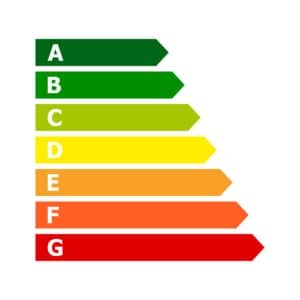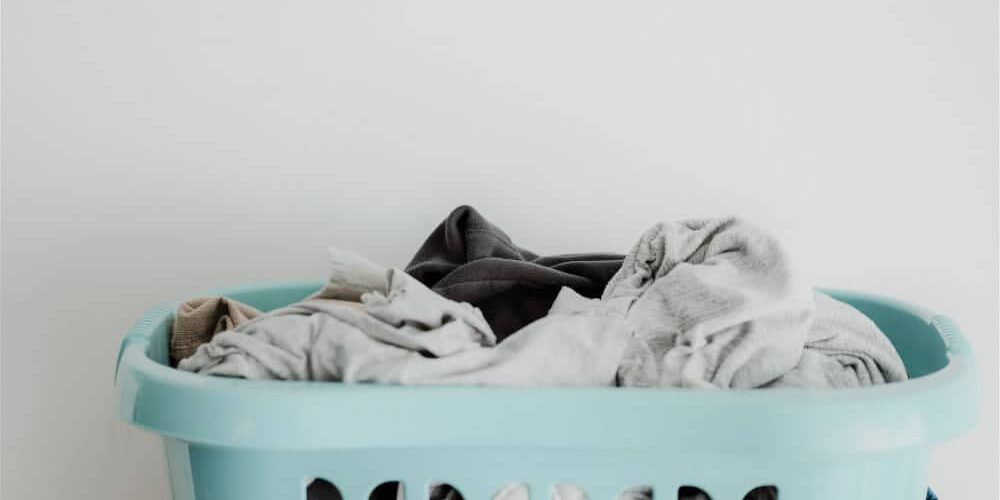Modern technology allows us to wash and dry clothes in record time, a blessing in the fast-paced 21st century. But the convenience of stain-dissolving soaps, synthetic fabrics, and high-tech machines comes at a cost. Harsh chemicals in detergents have been found in waterways, threatening ecosystems. Excess packaging often cannot be recycled, and vast amounts of energy, water, and fuel are used in every wash and dry cycle. Even our dazzling whites are not as green as they seem.
Research shows that heating water for laundry is one of the biggest contributors to a washing machine's carbon emissions. Choosing to wash at 30°C instead of 40°C can cut energy use by 38%, while dropping to 20°C can save up to 62%.
The good news? Small, everyday changes, from using biodegradable detergent to air-drying clothes, can make a huge difference. This guide from Maintracts Services shares practical eco-friendly laundry tips to help London households reduce energy waste, reuse resources, and recycle responsibly. Call us on 020 8682 2244 or email info@maintracts.co.uk to find out how we can help with appliance installation, repairs, and maintenance.
At Maintracts Services, we help London households save energy, reduce waste, and maintain efficient appliances with expert care you can trust.
Understanding The Impact Of Laundry On The Environment

Laundry routines contribute more to environmental damage than many people realise. Washing clothes consumes large amounts of water and electricity, while detergents can introduce pollutants into rivers and seas. Packaging waste and inefficient machines increase this footprint even further.
Although modern A-rated energy label washing machines are more efficient, it's how we use them that makes the biggest difference. By adjusting your habits, you can reduce your carbon emissions and conserve water while keeping your clothes clean and fresh.
Practical Ways To Reduce, Reuse And Recycle Your Washing Pile
1. Switch To Low Temperature Washing
Heating water is the biggest energy drain in laundry. Washing at 30 degrees instead of higher settings significantly cuts energy use, and modern detergents work well even at low temperatures.
2. Upgrade To Energy-Efficient Appliances
If your machine is outdated, invest in a large-capacity washing machine with an A-rated energy label. Dispose of old appliances through a retailer take-back scheme or at recycling centres in the UK.
3. Adopt Energy-Saving Washing Habits
- Always wash full loads.
- Use eco-mode settings.
- Avoid unnecessary pre-washes.
These steps reduce energy use and lower bills.
4. Choose Dryer Alternatives
Air-dry clothes where possible. If you must tumble dry, use a heat-pump tumble dryer, which is more efficient than standard vented or condenser models.
5. Use Eco-Friendly Detergents
Select a biodegradable detergent without unnecessary dyes or fragrances. Choose refillable or refill detergent packaging to reduce waste.
6. Extend Appliance Lifespan
Regular maintenance prevents breakdowns and ensures efficiency.
Also Read: Prevent A Blocked Washing Machine Filter
7. Recycle And Upcycle Old Machines
Consider upcycling old machines for parts or donating working appliances. Follow WEEE regulations for safe disposal.
Extra Steps For Sustainable Clothes Recycling
1. Donate Or Swap Clothes
Give unwanted garments to charity or host clothing swaps with friends.
2. Repurpose Old Fabrics
Turn worn-out T-shirts into cleaning rags or transform sheets into reusable bags.
3. Use Local Recycling Schemes
London offers textile recycling banks for clothing that's too worn to donate.
Reduce Laundry's Hidden Environmental Costs
Sustainable laundry is about more than the washing machine. Supporting systems also matter:
- Magnetic filters protect against damage from debris in water.
- Maintaining your pressure relief valve and expansion vessel prevents costly repairs.
- Condensate pipe insulation avoids freezing issues that could disrupt the hot water supply.
These measures protect your home and can be explored through our plumbing services in London.
Make Laundry Greener With Maintracts Services
Reducing, reusing, and recycling your washing pile is a simple but powerful step towards a greener lifestyle. Lower washing temperatures, eco-friendly detergents, and responsible appliance disposal all contribute to environmental protection and cost savings.
At Maintracts Services, we help London households adopt energy-efficient practices, maintain long-lasting appliances, and recycle responsibly. Our Gas Safe-registered engineers and plumbing experts are available 24/7 to keep your home running efficiently.
Call us today on 020 8682 2244 or email info@maintracts.co.uk for professional appliance installation, repairs, and energy-saving advice.
FAQs – Laundry And Appliance Care In London
What should I do if my boiler is leaking?
Turn off the water supply and call a qualified engineer immediately.
Why is my boiler showing low or high pressure?
It could be an issue with the pressure relief valve or a leak in the system.
How do I fix a frozen condensate pipe?
Gently pour warm water over the pipe or call a professional for safe thawing.
What does boiler kettling mean, and what causes it?
A rumbling boiler sound, which occurs often due to mineral buildup or restricted water flow.
Why is there no hot water, but heating still works?
This is likely a faulty diverter valve or thermostat problem.
How often should I replace a diverter valve?
Only when it fails can good maintenance extend its lifespan.
What error codes indicate thermostat or pump faults?
Refer to your boiler manual; a professional can confirm and repair faults.

